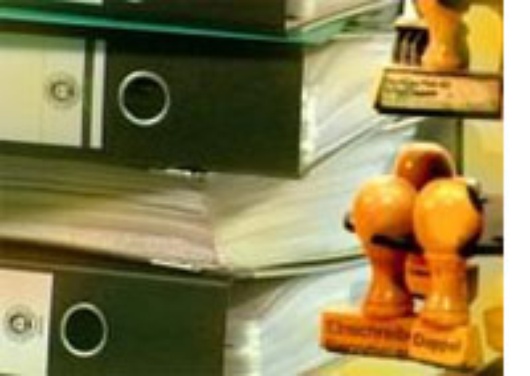Life after the Enlargement
Published on
Translation by:
 carolyn tyler
carolyn tyler
Disillusionment follows optimism in the new EU member states as daily life after accession holds many unpleasant surprises…
 The Czech Republic and Slovakia, due to their long and common history, shared a special relationship. To visit friends and family on the other side of the border, which no one actually considered as being a real barrier, only identity cards (rather than passports) were needed, while students were treated in the other country like locals. However, EU expansion has radically changed the nature of the border between the two countries, which can now only be crossed at specific, marked intervals. Furthermore, until 1st May 2004, health care in the other country was available to you simply on production of your national insurance card. Payment was then regulated directly between the doctor and your health insurance. Since the big day, the bureaucratic regulations of the "European Family" have also been imposed on the former Czechoslovakia. The insurance card is now no longer enough, because from Brussels came the E111. On a European scale, the possibility of union-wide health insurance is certainly a good idea, but in the Czech Republic and Slovakia it means additional paperwork. The filling out of the document takes an unnecessarily long time and you have to repeat this lovely procedure every six months.
The Czech Republic and Slovakia, due to their long and common history, shared a special relationship. To visit friends and family on the other side of the border, which no one actually considered as being a real barrier, only identity cards (rather than passports) were needed, while students were treated in the other country like locals. However, EU expansion has radically changed the nature of the border between the two countries, which can now only be crossed at specific, marked intervals. Furthermore, until 1st May 2004, health care in the other country was available to you simply on production of your national insurance card. Payment was then regulated directly between the doctor and your health insurance. Since the big day, the bureaucratic regulations of the "European Family" have also been imposed on the former Czechoslovakia. The insurance card is now no longer enough, because from Brussels came the E111. On a European scale, the possibility of union-wide health insurance is certainly a good idea, but in the Czech Republic and Slovakia it means additional paperwork. The filling out of the document takes an unnecessarily long time and you have to repeat this lovely procedure every six months.
Surreal technocracy
Even worse is a visit to the immigration police. Last year, registration with the police in Prague for a Slovakian involved a relatively short two hour visit to an easily reachable building near an underground station. You filled in a one-sided form and a month later you received your confirmation. However, surreal technocratic directives from the heart of the EU ensure unimaginable ‘fun’ from now on for all foreigners who have the good will to officially register themselves. The entire department has been relocated to the Prague suburbs and the queues are now so long that sometimes you have to come back another time. The reasonably understandable single page form has been replaced by a pointless six-sided one, and when you finally get to the end of it you still can’t celebrate – your passport photo doesn’t correspond to the European norm. The naive hope that it will all soon be over is quickly shattered. After sixty days you have to come back to collect your acknowledgement of application and after you’ve queued once again, you may or may not even receive it. But what will happen when the bureaucratic fools from Brussels have another genius idea?
Illusion of liberality
Enthusiasm for entry into the EU amongst students in the new member states has also been dampened due to the rapidly sinking number of scholarships, which until recently students in post-Communist countries benefited from. It was so wonderfully explained to us: the living standards of the EU countries are high and therefore social benefits funded by the member states now go to students in non-EU countries in south-eastern Europe. This policy allows for no debate. After all, politicians have always pointed out that you should give to those who need it most. With the optimism, Western education and language abilities that these benefits lead to, these countries are then worthy to engage in further, meaningful border changes to the European Union. Perhaps worst of all is that free movement of labour, which was one of the sweet honeycombs the little bees from the former Eastern block were enticed with, is in reality not so ‘free’ as the bee-keepers in the West announced the temporary closing of beehives to the new labour force. Thus, students received another slap in the face as they are unable to improve their financial situation by working in the summer in the West. Is there something wrong with this huge European mechanism? One thing is certain: the economical miracle of May 1st did not take place. Was it some dirty trick played on us? Or just reality seen without rose-tinted glasses.
Translated from Das Leben nach dem Betritt


